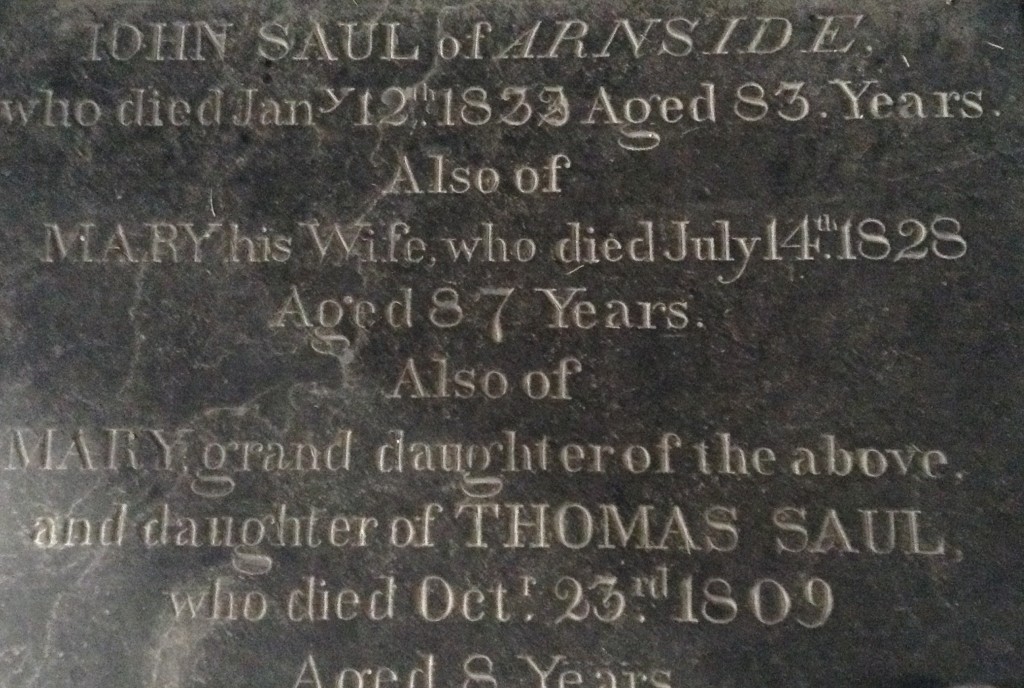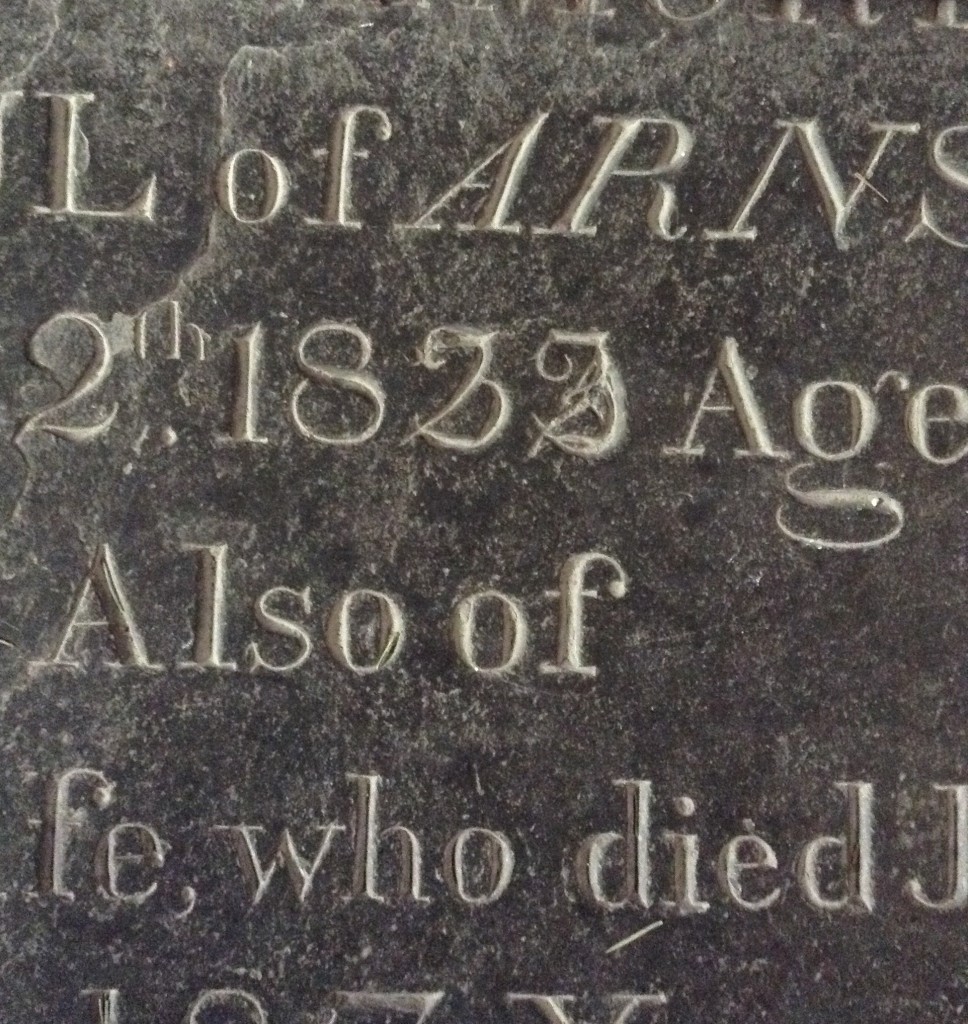 Congratulations to Anne Toner, a member of the CMT steering committee since the Centre’s inception, on the publication of her book on Ellipsis in English Literature. As someone who is fascinated by the workings of punctuation, and who is seriously over-reliant on the ‘…’, I am looking forward to getting my hands on a copy…
Congratulations to Anne Toner, a member of the CMT steering committee since the Centre’s inception, on the publication of her book on Ellipsis in English Literature. As someone who is fascinated by the workings of punctuation, and who is seriously over-reliant on the ‘…’, I am looking forward to getting my hands on a copy…
30 April 2015, Corpus Christi College, Cambridge
AMARC’s Spring 2015 meeting will focus on the medieval libraries and manuscripts of the two great monastic institutions of Canterbury, the priory of Christ Church and St Augustine’s Abbey.
Speakers: David Carpenter (KCL), Christopher de Hamel (Corpus Christi College, Cambridge), Richard Gameson (University of Durham), Helen Gittos (University of Kent), Nigel Ramsay (UCL), Tessa Webber (University of Cambridge) .
To register go to tinyurl.com/AMARC2015
You are warmly invited to join us for the second Annual Digital Humanities Lecture, on 29 April 2015, to be given by Professor Jonathan Hope. The lecture will be held in ArtsTwo Lecture theatre, Queen Mary University of London, at 5.30pm, and will be followed by a wine reception. Please register here to attend.
Books in space: hyper-dimensional reading
Digital tools allow us to ‘read’ vastly more text than any human could manage in a lifetime. They also allow us to make comparisons between texts, genres, and periods based on projections of those books into multi-dimensional spaces. Some have hailed the advent of ‘culturomics’ – but what kind of ‘reading’ is this, and how can we ‘read’ spaces which are beyond the imaginative capacity of human minds? I’ll consider the promise, and the opportunities, of digital methods applied to large collections of texts – and I’ll also consider how these tools and methods might change the nature of our object of study. Most of my examples will be drawn from Shakespeare and the Early Modern period.
Another in our series of gravestone corrections: this one from the parish church of St Michael & All Angels, Beetham, in south Cumbria, showing some confusion over when John Saul died. There must be lots more out there – send them to me (lmfr2’at’cam.ac.uk if you find any!)
There’s nothing to beat the examples of historical language usage in the Oxford English Dictionary. Today I was chasing up the history of ‘hearsay’ and came across this:
‘I haue heard tell of a Bishoppe of this lande, that would haue eaten fryed frogs.’
–from Cogan’s Haven of Health (1584). Well, it was only hearsay.
Call for Papers: Texts in Times of Conflict
March 22nd, 2015Calls for Papers, News; Jason Scott-WarrenDe Montfort University, Leicester, 8 September 2015
Plenary speakers: Dr Natasha Alden (Aberystwyth University) and Prof. Ian Gadd (Bath Spa University).
Reflecting on the seismic cultural and political shifts of his own time, Francis Bacon pinpointed ‘printing, gunpowder, and the compass’ as the technological drivers which had ‘changed the appearance and state of the whole world’. Bacon’s identification of communicative (print), violent (gunpowder) and technological (compass) forms of cultural expression and exchange as world-shaping continues to resonate, shaping the production and interpretation of texts.
We welcome papers of between 15 and 20 minutes’ length on topics including but not limited to:
- Textual and visual representations, interpretations of and responses to conflict
- Adaptations which respond to past and/or present conflicts (including conflicts within academic disciplines)
- Conflictual relationships between artistic, critical and intellectual movements
- Processes and agents shaping the design, production, dissemination and consumption of texts
- Theoretical and bibliographical methodologies
- Intellectual conflicts surrounding the emergence of new media and technologies
- Competing or contradictory representations of conflict through identical or different expressive forms
- State involvement in the production, dissemination and consumption of texts in times of conflict
- The evolution of media forms and their impact on conflict-based studies
Proposals of up to 250 words should be submitted online athttps://gradcats.wordpress.com/call-for-papers/ by Friday 5 June. Alternatively, email them to gradcats@outlook.com.
Bursaries are available. See https://gradcats.wordpress.com/ for details.
This conference is jointly hosted by De Montfort’s Centre for Textual Studies and Centre for Adaptations.
Friday 20th March 2015; Richmond, American International University in London
Lecture Theatre, 17 Young Street, London W8 5EH
Artists’ books are collaborations. They are often composed of both words and images, and are produced in a combination of media. They can be seen as mixed media dialogues that involve more than one person.
This one day conference examines the collaborative process (author and artist, text and image, maker/bookbinder and artist, etc.) that is fundamental to many examples of artists’ books or book art. The conference focuses on contemporary works and addresses the following fundamental questions: What kinds of dialogues feature in contemporary artists’ books? How does this collaboration affect the production and dissemination/display of the work made?
Programme
practice & production
Chair: Professor Estelle Thompson
11:00 – 11:10 Introductions
11:10– 11:30 Dennis de Caires and Nina Rodin, ‘The Book As A Shared Space’
11:30 – 11:50 Richard Bevan and Tamsin Clark, ‘Coverage and 4th smouldering waste and slightly horny, slightly pleated back, published in 1963’
11:50 – 12:10 James Keith and Clare Bryan, ‘A Matter of Speculation’
12:10 – 12:40 Discussion and Questions
12:45 – 2:10 Lunch
display & dissemination
Chair: Dr Deborah Schultz
2:15 – 2:45 Keynote Speaker: Maria White ‘The artist’s book: some collaborations’
2:45 – 3:05 Tamsin Clark, ‘Tender Books’
3:05 – 3:25 Professor Estelle Thompson, ‘A Frame of Mind with Hand in Glove’
3:25 – 3:45 Discussion
3:45 – 4:05 Coffee Break
4:05 – 4:25 David Stent, ‘Collaboration in These Weak Kindnesses’
4:25 – 5:05 NEUSCHLOSS (Charles Danby, Joanne Tatham & Tom O’Sullivan, and Louise O’Hare) In Conversation.
5:05 – 5:30 Wrap-up Session
5:30 Adjourn to Asa Briggs Hall for exhibition and drinks reception
Registration:
It is free to attend the conference, however booking is essential. To secure a place, please email Dr Deborah Schultz: deborah.schultz@richmond.ac.uk
For more information, see the Richmond website, http://www.richmond.ac.uk/about-richmond/contact-us/
Yesterday was World Book Day, and children across the country were invited to go to school dressed as a character from a book. My 10-year-old son, not a big fan of dressing-up, got a white shirt and a flat cap and said he was the ghost of a chimneysweep, from David Walliams’ Awful Auntie.
 There’s a lovely news story doing the rounds this morning about Liam Scholes, an 11-year-old from Manchester who went as the male lead in Fifty Shades of Grey, dressed in a grey suit, carrying a face mask and cable ties. The school judged the costume inappropriate, excluded the poor lad from the group photographs, and politely asked him to rebrand himself as James Bond–apparently a suitable role-model for children of this age.
There’s a lovely news story doing the rounds this morning about Liam Scholes, an 11-year-old from Manchester who went as the male lead in Fifty Shades of Grey, dressed in a grey suit, carrying a face mask and cable ties. The school judged the costume inappropriate, excluded the poor lad from the group photographs, and politely asked him to rebrand himself as James Bond–apparently a suitable role-model for children of this age.
Good on Liam for exposing the perversity (as it were) of World Book Day, and the sanitized notion of the book that we too often fall back on. We need to let children know that books are NOT good for you. That’s why so many adults love reading.
On Friday 20th March 2015, Cambridge University Library will be holding a further masterclass as part of the Incunabula Project.
The masterclass, entitled “Rubrication and fifteenth-century English printing” will be led by Satoko Tokunaga of Keio University & Takako Kato of De Montfort University.
The seminar will be held in the Sir Geoffrey Keynes Room at the Library. It will start at 2.30pm and will last approximately 90 minutes, allowing time for questions and discussion. Attendance will be limited in order to allow all attendees a chance to see the books under discussion up close, and to participate in the discussion.
To book a place, please email <incunabula@lib.cam.ac.uk>.


